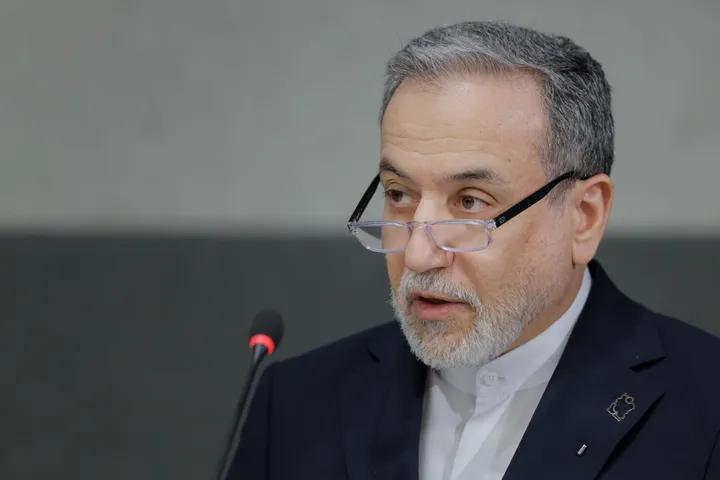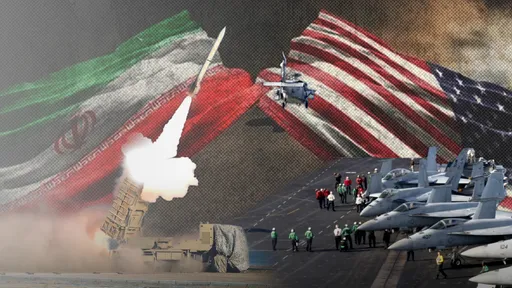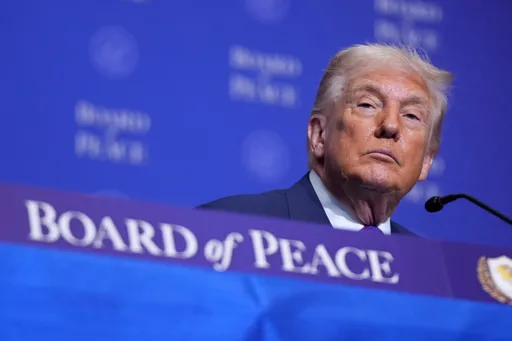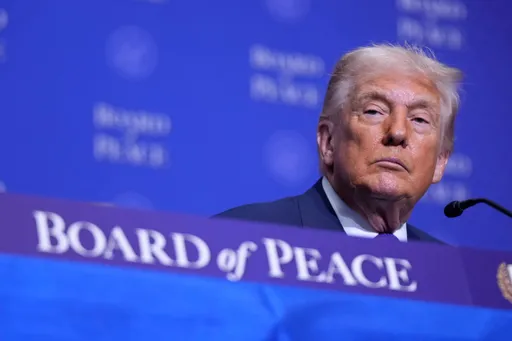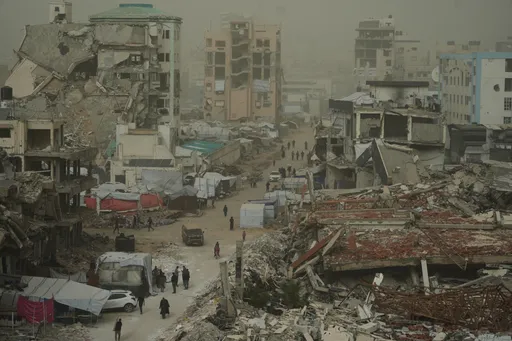KABUL — When Idrees Stanikzai announced his candidacy for one of Kabul’s 33 parliamentary seats, he broke with several long-held traditions of Afghan politics. From the start, everything he did seemed to go against conventional wisdom, but it was all by design.
Rather than plastering the Afghan capital with posters, banners and billboards that have come to dominate the city since campaigns began on September 28, Stanikzai travelled a distance of 139 kilometers to the Eastern province of Paktia to honour one of his political heroes, the controversial communist President, Najibullah Ahmadzai.
He formally launched his bid with a tweet from the gravesite of the slain Afghan leader.
It would be another 10 days before the 28-year-old put up his first campaign posters.
Though he is among a new wave of young Afghans vying for one of 249 seats in the Wolesi Jirga, the lower house of parliament, Stanikzai says his insistence on a slow and steady pace came from observing the campaign of one of the oldest candidates in the 2014 presidential polls.
“I don’t want to end up like Zalmai Rassoul. In the first days of his campaign he took off like a bullet, and by the end, it seemed like he had to be pushed and dragged to every event. I’d rather start slow and build speed,” Stanikzai said of the former foreign minister who was 71 at the time of his presidential bid.
Since then, he has continued to forgo the tried and true traditions of campaigning.
Instead of seeking the endorsement of a powerful warlord or the political establishment, Stanikzai is looking directly to the people for support and the most visible display of recognition came from his wife, Shkula Zadran. In a tweet that quickly went viral, she said: “My life partner, my friend and my love is going to compete in incoming parliamentary elections. Wish u all the best @Stanikzaiii.”
Stanikzai’s response, “They say behind every successful man there is a woman. In my case, there are two women behind my journey. a caring #Mom a loving #Wife,” was even more daring in a society where men rarely speak publicly about the female members of their families.
But Stanikzai insists he means every word.
Speaking to TRT World at his West Kabul campaign headquarters, he beams with pride as he describes the impact his mother has had on his life.
“Everything I am, everything I aspire to be, is because of my mother,” he says.
His appreciation for his mother’s devotion and drive — working with aid groups in Kabul and the southern province of Kandahar for more than 15 years — has also left a positive impression on his campaign.
As part of his nine-point plan for bringing change into The House of the People, Stanikzai wants to ensure that all Afghan women are given access to education. He does not shy away from bringing up girls' education whenever he's speaking to an audience. While addressing a group of more than 20 young men from a local boxing gym on a Sunday morning he repeated the point
But he is also careful to state that on this matter he does not want to break with the Afghan tradition, after all, his own mother and wife — from two entirely different generations — are both educated women.
“When I say education, I mean within the confines of Islam and Afghan values. Education does not mean Westernization, our people do not have to part with what makes us Afghan and the ideals of our religion in order to gain an education.”
Stanikzai’s need to clarify this point could be seen both as an exercise of caution on his part and a conscious course correction for the mistakes of two of his Afghan political idols, Amanullah Khan — the king who declared independence in 1919 — and Najibullah Ahmadzai — the nation’s last communist president.
Both men were derided in their time only to regain prominence in the decades after their deaths.
From Amanullah, Stanikzai has taken the king’s determination to ensure education for all Afghan women, and from Najibullah, Stanikzai wants to emulate his “willingness to sacrifice himself for the nation.”
Despite his admiration for both men, he is cautious not to repeat their chief mistake: “They wanted to move too fast, they didn’t understand that societal change can’t be rushed, it comes in time, in steps,” he says of his idols.
However, in a legislature plagued with accusations of corruption, smuggling and bribery, almost any steps Stanikzai and other young hopefuls want to take may be considered too drastic for the old guard in parliament.
The fact that he is running from Kabul, and not his home province of Kandahar, where he spent the majority of his life, may be one of the most obvious concessions to the political realities of the nation.
“In Kandahar politics is not free, it’s controlled by very specific camps, and if you don’t fall in line, you are very quickly done away with,” he says referring to the hold General Abdul Raziq — the provincial police chief who has been accused of everything from drug smuggling to the killings of potential rivals — has over the province.
“He is the boss. He is the law” in Kandahar, Stanikzai says.
There is also the issue of the Taliban, whom Stanikzai railed against in a Facebook video after the group nearly took control of the Eastern province of Ghazni last August.
The video may have been brief — only one-and-a-half minutes long — but his words were deliberate. Looking directly at the camera, Stanikzai said what the group was doing in the province, including allegations of burning schools, was “jahalat, not jihad.”
“I dared them to go to Iran and Pakistan where they are trained and supported and try to burn even one chair of a school and see how the Iranians and Pakistanis would react.”
The message did not sit well with the group’s cultural commission, who addressed it in a gathering shortly after it was published and shared online.
“I was told that I was only spared because I have also criticised the United States and the Afghan government.”
But his criticisms don’t end there.
Stanikzai has also gone after powerful politicians, supporters of jihadi leaders turned warlords, and the warlords themselves. He made no attempt to hide his disdain for such figures, many of whom have been seen as political kingmakers in the past when speaking to a group of visitors on Sunday.
“When the President needs advice, he turns to Ostad Sayyaf and Gulbuddin Hekmatyar and Ostad Mohaqiq, not the young people who will be the ones who have to live with his decisions. I want to lay the groundwork so that in the future, when the government wants advice it turns to young people,” Stanikzai said in reference to the jihadi leaders who orchestrated a devastating civil war in the 1990s that led to the deaths of tens of thousands and divided Kabul along ethnic and sectarian lines.
This, coupled with his support of Najibullah, the communist president who has been accused of widespread torture of those who opposed the communist regimes of the time, could alienate Stanikzai from swathes of potential voters.
Then there is the matter of his age. The national unity government, headed by President Ashraf Ghani, has already been accused of relying too much on young, inexperienced people to run a government that is dealing with increasing civilian casualties, a 40 percent unemployment rate, a resurgent Taliban and the continued rise of forces claiming allegiance to Daesh.
Stanikzai does not shy away from this criticism. In fact, he agrees with it.
As he sees it, President Ghani has made two mistakes when it comes to appointing young people.
“He brought in people who don’t understand the culture and context of this country.”
Beyond that, Stanikzai said the unity government provided too many people with too much power too quickly.
“It’s like the government put these young people on a spring and sent them soaring, only so they could fall back to earth and be left behind when things got too tough.”
Though he understands some may see him part of this trend, Stanikzai says his actions will prove that he can rise above those mistakes and represent the people of a nation he’s devoted his life to.
“I’ve never left this country and I don’t plan on leaving it now. How could I with everything that’s going on here. I want to serve my people.”
Still, with an estimated 84 percent of the Afghan population under the age of 40, Stanikzai feels like his age, his views, and his vision will make him stand out in a country where more people think like him than the men and women currently sitting in the parliament.
Even with these potential challenges, Stanikzai remains undeterred in his mission to bring a new face and new thinking to the Afghan parliament, which he says has only grown more distant from the people.
“There are too many people in the parliament that are looking to divide the Afghan people, I want to bring us together. In place of their closed doors, I want to build a bridge for the people.”



